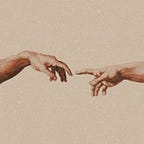Toxic Hyper-Masculinity/Femininity and how it Effects the new Generation
The Effects of Media on adolescents
Media has been, and will continue to be, a big part of many adolescents’ lives. It’s the fastest way people get their information and facts from nowadays. Though what had started of being a device for entertainment has now been changed into a tool of feeding lies into (avoid figure of speech) the young minds of these teens. Social media now negatively affects young adolescents by giving them unrealistic body standards while also crushing their mental well-being.
To stary off, over the media we see many different people being shown as the ideal body shape and/or having the ideal appearance, this for one; can be very detrimental for the mental health and well-being of young adolescents. For example, Maddie McGowan who said “as a young girl, I do feel I need to be perfect and compare myself to others all the time.” (Marsh, 2017) Maddie represents a large portion of young adolescents as we can see published in Prnewswire in their article “New Survey Shows More Than Half (54%) Of US Teens Think Life Would Be Better Without Social Media” they say; “an overwhelming majority (96%) of US teens who are not satisfied with their smile are insecure about their appearance.” (align Technology, Inc. 2014) Seeing other people on social media with what society thinks is the ideal body shape can make teenagers very self conscious and lose confidence in their own bodies. In conclusion these posts take away our life and our dignity, telling us we have to look a certain way in order to be beautiful when that simply isn’t true. The best way to contest this point is to have teachers in school teach us the meaning of self love, to appreciate ourselves and to not care about others opinions.
To add on, we see ads and promotions selling us the diets which are said to make us the most idealized and best versions of ourselves. For instance, there are hundreds of diets which all have some form of “be your best self” in marketing. Some examples are “5 Tips to Be Your Best Self in 2018” (amber Specialty, 2018), or in addition; “Become your Best Self with anti-Inflammatory Diet by Louise Steen” (ewfood, 2015). Both of these are examples of companies exploiting our want to feel appreciated and accomplished. They always say that we’ll finally be beautiful once we use their diet and lose weight to become the “best version of ourselves” instead of just letting ourselves grow comfortable in our skin. They’re silently body shaming adolescents and telling them they’re not good enough while hiding behind the mask of saying; “we’re only trying to help you be YOUR best.” all in all they’re exploiting our vulnerabilities and playing sick mind tricks on us. We need to inform more people of these dangers of media and to be more aware of these marketing strategies to make sure that everyone is aware of what’s happening.
Furthermore, mostly everything in the media is hyper-masculised/hyper-feminized, saying we should only act based on gender stereotypes and to behave in certain ways. These stereotypes are yet reinforced and exaggerated in many films and books such as; Gaston from Beauty and the Beast (Disney, 1991), he was portrayed as an assertive and strong man who showed little emotion and who didn’t care about how his actions could affect others. Another great example is Snow White from Snow White and the Seven Dwarves (Disney, 1938), in the film she is mostly only shown cleaning and cooking for the seven dwarves. These are only two examples from stories that everyone has heard of, which are also blatantly sexist as well as outdated. We hear of these stories when we are young and impressionable, we grow up learning to wear dresses and like pink if we’re girls and to play with cars and like blue if we’re boys. If we don’t we feel alienated and different from what our society deems normal. We grow up in a toxic and exaggerated hyper-masculized / hyper-feminized world that tells us what to do and how to act which isn’t okay for growing up in the 21st century. By showing us these stereotypes they’re taking away our rights to be whoever we want, they take away our rightful freedom. Instead big corporations / companies who are in charge or the media should be more mindful of what they’re putting into print / the big screen and show us more characters who stray from the social norm and who pave their own paths.
In conclusion, the media affects teens negatively by giving them outrageous body standards, breaking down their mental health, and supporting stereotypes that are very outdated especially in the 21th century. Adolescents all need to be more informed on these dangers as well as the many other dangers of social media so they can all use it safely and justly.
align Technology Inc. “New Survey Shows More Than Half (54%) Of US Teens Think Life Would Be Better Without Social Media.” prnewswire.com. Invisalign, 19 Sept. 2014. Web. 19 Sept. 2009
Sarah Marsh. “Girls and Social Media: ‘you are Expected to Live up to an Impossible Standard.’” theguardian.com. theguardian, 23 aug. 2017. Web. 23 aug. 2017
ewfood. “Become your Best Self with anti-Inflammatory Diet by Louise Steen.” expatwoman.com. ewfood, 12 Oct. 2015. Web. 12 Oct. 2015
amber Specialty Pharmacy. “5 Tips to be your Best Self in 2018.” amberpharmacy.com. amber Specialty Pharmacy, 8 Jan, 2018, web. 8 Jan, 2018
Jesse Gumbarge. “10 Ridiculously Manly Movie Characters Who Drip Machismo.” whatculture.com. WhatCulture, 14 aug, 2014, web. 14 aug, 2014
Joseph allen. “Toxic Masculinity in “Beauty and the Beast.”womenandhollywood.com. WomenandHollywood, 22 March, 2017, web. 22 March, 2017
John Patrick. “Professor warns of toxic masculinity themes in Disney’s ‘Beauty and the Beast.’” washingtonexaminer.com. WashingtonExaminer, 07 Nov, 2017, web. 07 Nov, 2017
